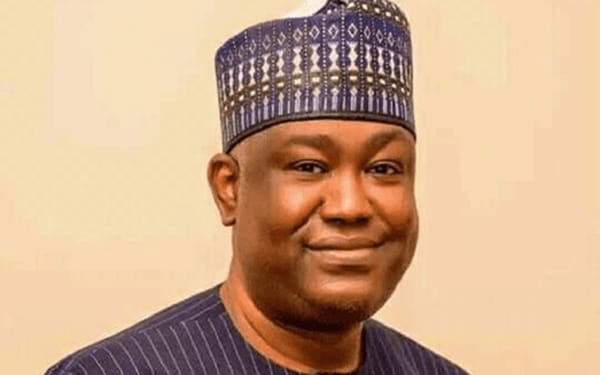Peoples Democratic Party (PDP) chieftain and former presidential aspirant, Dr. Gbenga Olawepo-Hashim, has donated N5 million to the Correspondents’ Chapel of the Kwara State Council of the Nigeria Union of Journalists (NUJ). The donation was made during the chapel’s 45th anniversary celebration held in Ilorin, the Kwara State capital.
Olawepo-Hashim, who was represented at the event by Abdulrazaq Hamzat, also received an Award of Excellence from the union. In his acceptance remarks, he dedicated the award to Nigerian youths and to all victims of institutional abuse, describing them as often overlooked but central to the fight for justice and democratic integrity.
He told an audience comprising journalists, civil society leaders, and political figures that the honour was not merely about his personal achievements but a recognition of the struggles of many Nigerians who have been silenced or sidelined by systemic injustices. He stressed the importance of a strong, independent, and fearless press, describing it as the “pillar of democracy” and urging journalists to remain steadfast in holding institutions accountable.
Olawepo-Hashim drew particular attention to the issue of institutional abuse, which he characterised as a “silent killer of democracy.” He explained that such abuse stifles innovation, discourages dissent, and erodes public trust in governance. He singled out the education sector as a notable area where such abuses occur, recalling his own experience with the University of Lagos (UNILAG), which withheld his degree certificate after disputes linked to his role in student activism.
Reflecting on that period, he remarked that while a certificate could be withheld, knowledge could not be taken away. He noted that the setback became a turning point that spurred him to found Set and Sell, a political communication firm that would later establish his reputation as a skilled public relations strategist and entrepreneur.
The PDP chieftain also cited the experience of Abdulrazaq Hamzat, who, he said, was expelled and denied a Master’s certificate by the National Open University of Nigeria (NOUN) following disagreements over student association activities. Olawepo-Hashim condemned such actions, warning that they undermine Nigeria’s democratic standing and create lasting damage to intellectual freedom.
“Institutional issues should be addressed intellectually, not through victimisation,” he said, insisting that educational and governmental bodies must embrace open debate rather than punish dissenting voices.
The NUJ Correspondents’ Chapel explained that Olawepo-Hashim was chosen for the award in recognition of both his vision for national development and his humanitarian efforts. The union highlighted the impact of his Gbenga Hashim Foundation, which has carried out social and economic empowerment initiatives across Nigeria, touching the lives of many, particularly in underserved communities.
The chapel, which represents correspondents from 50 leading national media outlets, reiterated its commitment to defending press freedom and supporting those who contribute to the advancement of democratic values. It commended Olawepo-Hashim for using his platform to speak on behalf of marginalised groups and for providing tangible support to media practitioners in the state.
Olawepo-Hashim’s remarks and his financial contribution were warmly received at the event, with attendees noting that his focus on institutional reform and his advocacy for youth empowerment resonated with the NUJ’s mission. The donation, according to organisers, will be used to strengthen the chapel’s operational capacity and enhance the welfare of its members.
The 45th anniversary celebration served as both a moment of reflection on the chapel’s decades-long role in promoting press freedom and a call to action for the media to intensify its watchdog role in the face of persistent challenges to democratic governance in Nigeria.





